11 Must-Know SEO Techniques for Boosting Website Visibility
In the vast digital landscape, where lots of websites are competing for attention, having strong SEO techniques for boosting website is crucial for success. Search Engine Optimization (SEO) serves as the cornerstone of digital visibility, enabling websites to rank higher in search engine results pages and attract organic traffic. However, with search engine algorithms evolving constantly, it’s essential for website owners and marketers to stay updated on the latest SEO techniques to maintain and improve their visibility. In this comprehensive guide, we’ll explore eleven must-know SEO techniques that can significantly boost your website’s visibility and drive sustainable growth.
1. Conduct essential Keyword Research:
Keyword research builds the foundation of any successful SEO techniques for boosting website. By identifying the terms and phrases your target audience is searching for, you can optimize your content accordingly and increase your chances of ranking higher in search results. Digital marketers may use prominent keywords research tools to find out relevant keywords with low competition and high search volume for their website. Google Keyword Planner, SEMrush, or Ahrefs can help miraculously to accomplish keywords research. Additionally, focus on long-tail keywords, as they often have higher conversion rates and are less competitive.
2. Optimize On-Page Elements:
On-page optimization is very crucial for ranking a website in google. On-page optimization includes content optimization with relevant keywords, image alt tags, proper meta description, heading, title tags etc. Make sure your content is unique, informative and relevant for users and search engine alike. Moreover, out bound and internal linking will improve website’s crawlability and indexability.
3. Create High-Quality, Relevant Content:
Content remains king in the realm of SEO. Producing high-quality, relevant, and valuable content not only attracts visitors but also earns backlinks and improves your website’s authority. Always invest in creating well-researched, up to date, informative content that help target audience one way or another. Incorporate multimedia elements such as images, videos, and infographics to enhance user experience and engagement.
4. Improve Page Loading Speed:
Page loading speed is a critical ranking factor that significantly impacts user experience and search engine rankings. Audience may bounce back if you have Slow-loading websites that will decrease conversion rates. To improve your website’s loading speed, optimize images, enable browser caching, minify CSS and JavaScript files, and leverage content delivery networks (CDNs). Regularly monitor and optimize your website’s performance to ensure fast and seamless user experiences.
5. Technical SEO:
Technical SEO is another important ranking factor for a website. An SEO expert or digital marketer needs to find out whether there are technical issues in website like 404 errors, orphan page, broken links, indexing problems. Quick fixes may help ranking website on googl search result page.
6. Focus on Mobile Optimization:
Make sure your website is mobile friendly because online landscape is being dominated by growing mobile users. Google’s mobile-first indexing prioritizes the mobile version of websites for ranking, making mobile optimization essential for SEO success. Ensure that your website is responsive and mobile-friendly, with easy navigation, fast loading times, and optimized content layout for various screen sizes.
7. Build High-Quality Backlinks:
Backlinks are still one of the most influential ranking factors in SEO. However, not all backlinks are created equal. Try to achieve high-quality backlinks from high authority websites within your relevant niche. Leverage strategies such as guest blogging, broken link building, and influencer outreach to acquire backlinks naturally. To avoid penalties from search engines, never apply black hat SEO techniques for your websites.
8. Optimize for Local Search:
If your business is for local or nearby customers or audience, you need to optimize your website for local search. Claim and optimize your Google My Business listing, ensuring that your business name, address, and phone number (NAP) are accurate and consistent across all online platforms. Try to earn positive reviews, these will profoundly impact your local search rankings. Additionally, optimize your website’s content and meta tags for local keywords and locations.
9. Utilize Schema Markup:
Schema markup is a form of structured data that helps search engines understand the content of your website better. By implementing schema markup, you can enhance your search engine listings with rich snippets, such as star ratings, reviews, and event information, making them more visually appealing and informative. Use Google’s Structured Data Markup Helper to generate schema markup code for your website and improve your visibility in search results.
10. Monitor and Analyze Performance:
Continuous monitoring and tracking are very important to know the key performance for effective SEO technique for boosting website. It is important to know and track the metrics for future improvement, and apply your SEO strategy accordingly. Google Analytics and Google Search Console are two awesome tools to do that properly. Regularly audit your website to ensure optimal performance.
11. Stay Updated on Algorithm Changes:
Search engine algorithms are updating continuously. Stay informed about the latest algorithm changes and industry trends by following reputable SEO blogs, attending conferences, and participating in online communities. Adapt your SEO techniques accordingly to align with algorithm updates and best practices, ensuring that your website remains visible and competitive in search results.
In conclusion, mastering these eleven must-know SEO techniques for boosting website can significantly enhance your website’s visibility and drive sustainable growth in the highly competitive digital landscape. By conducting thorough keyword research, optimizing on-page elements, creating high-quality content, improving technical aspects, and staying updated on industry trends, you can establish a strong online presence and attract valuable organic traffic to your website. Remember that SEO is an ongoing process that requires dedication, patience, and adaptability – but the rewards are well worth the effort.
